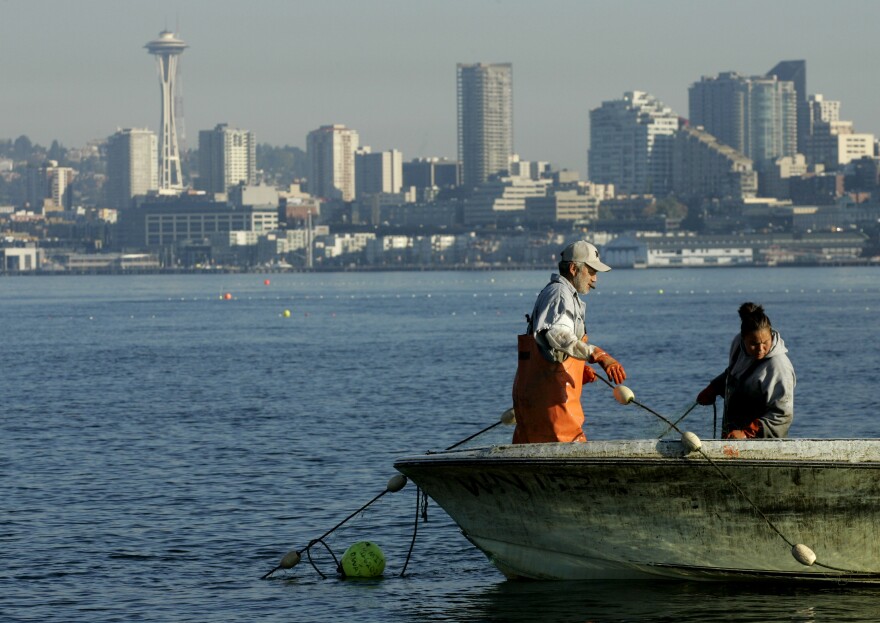The U.S. Environmental Protection Agency is making good on its promise to put forward a clean water rule for Washington, in case the state doesn’t come up with its own plan in time.
At issue is how much fish the government says is safe to eat, if it’s caught in polluted water.
In early August, Washington was on track to adopt a major rewrite of the state's outdated water standard, known as the "fish consumption rule." It uses the amount of fish we eat as a measure of how clean the water must be to protect human health.
But Gov. Jay Inslee put the most recent proposal on hold and directed the state Department of Ecology to reassess its approach. Chris Wilke, executive director of the non-profit Puget Soundkeeper Alliance, says controversy had swirled around the state’s proposal to loosen the allowable levels of carcinogens.
“The state was walking back the cancer rate, from one in a million to one in 100,000. And alarmingly so for a class of chemicals that is extremely pervasive in the environment: PCBs," Wilke said.
"The state was walking that all the way back to one-in-25,000 risk factor. And the EPA is holding strong at one in a million. So that is a significant step forward.”
The EPA’s latest proposal retains that lower cancer rate, setting pollution levels based on a consumption rate of about one serving of fish per day. That’s the same rate Oregon adopted four years ago.
There’s concern from some business groups and local governments that the cost of implementing this standard will disrupt economic development. But environmental groups have threatened to sue unless the rule is updated.
The EPA says it would still prefer the regulation come from the state and will pause its process if one comes through.







